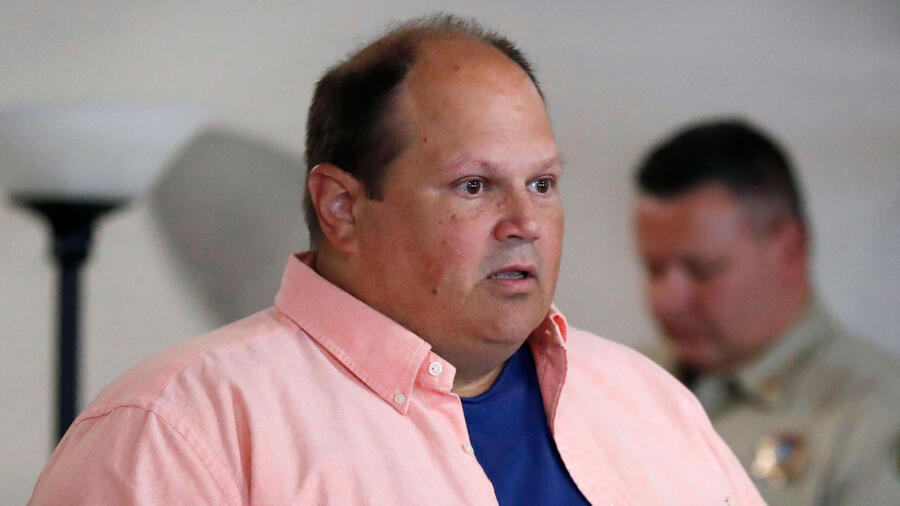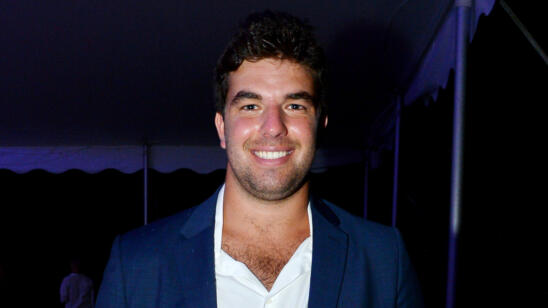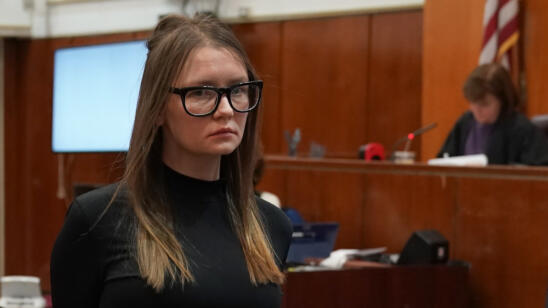The Iowa Hot Lotto fraud scandal was the largest lottery-rigging scheme uncovered in the United States. It involved a cast of con artists, malicious computer code, a $16.5 million lottery ticket and…Bigfoot hunters.
Rob Sand, author of a new book, The Winning Ticket: Uncovering America’s Biggest Lottery Scam, was the prosecuting attorney for the Iowa Attorney General’s Office in the Hot Lotto case and is now State of Iowa Auditor. A&E True Crime spoke with him about how the extraordinary scheme went down.
Explain the basics of the Multi State Lottery Association (MUSL) ‘Hot Lotto’ game and how it operated in 2010.
It was an RNG game, a Random Number Generator, as opposed to a “ball game” most people are familiar with. An RNG game has a number generator inside of a computer that spits out numbers. [Players] then try to match them all to hit the jackpot and win everything in there. Some lotteries are specific to a particular state, but Hot Lotto was played across 15 different states, which meant a lower chance to win, but more money.
[Stream episodes of 60 Days In in the A&E App.]
Talk about the strange journey of the $16.5 million winning ticket at the center of this case.
It was sold in a Des Moines, Iowa convenience store on December 23, 2010. [In addition to verifying ticket serial numbers and both store and player signature receipts], the Iowa Lottery also gets the surveillance video of a big jackpot ticket purchase [if available] typically within a day or two of when it’s sold. They do this so they can compare it to people’s claims—the easiest way to weed out false claims. Winners have one year to claim it.
But after the announcement that someone had purchased the jackpot ticket [at that location], time just crept by. No one came forward for months.
It wasn’t until the eleventh month that anybody made a truly credible claim—a Canadian lawyer named Philip Johnston who called and said he’d traveled through Iowa and bought the ticket, and he provided the serial number [on the ticket itself]. But when the Iowa Lottery asked him to describe himself and what was he wearing the day [of the purchase], he was clearly not the purchaser from the video.
When the Iowa Lottery told him they knew he didn’t buy the ticket, Johnston stopped communicating with them. He just kind of disappeared.
Then on the last day of the claim period, another lawyer [from New York] named Crawford Shaw had a law firm in Des Moines claim the ticket on his behalf. He was representing an anonymous trust in Belize, [of which he himself was the trustee].
By law, the Iowa Lottery still needed to know who bought the ticket and everyone who had possessed it after it was purchased, but the law firm refused to say and eventually withdrew their claim. So the Iowa Lottery contacted the Iowa Attorney General’s office and requested an investigation.
When you inherited the case in 2014, one of the first things you did was release the convenience store videotape to the public. What was the result?
Eddie Tipton [the ticket purchaser] was identified. We had two or three people independently contact our office to say it was him in the video—universally recognizing him by his voice, not his appearance.
Did you quickly connect Tipton to his job at MUSL?
We did, because the tipsters told us he worked at MUSL, which was immediately intriguing because it gave us a reason why he wouldn’t want to be identified. We didn’t know at the time his job was literally writing the computer program that picked the random numbers—because no one specifically told us—but we knew working at MUSL meant he was a prohibited purchaser, meaning he was not allowed to buy lottery tickets or play jackpots.
Once you had Tipton’s name and job at MUSL, you were able to piece together his computer scheme where he programmed the RNG to produce special results if the lottery numbers were drawn on certain days of the year, thus enabling him to ‘pick’ winning numbers. How did you uncover his hidden malware?
The investigation was essentially conducted by the states of Iowa and Wisconsin, and later Colorado was helpful.
Wisconsin brought in a forensic computer specialist named Sean McLinden, who completely reverse-engineered the information. Every time we located one of the MUSL computers that had been used around 2010, it had been wiped clean when pulled out of service. Wisconsin, however, still had one of those computers pulled out of service [that] they didn’t wipe. Sean was able to go back into that old computer, locate the same file that had been in use at the time and effectively reverse engineer the contents of [Tipton’s] code.
In addition to Johnston and Shaw, another co-conspirator emerged: Eddie’s brother Tommy Tipton, who was involved with another fraudulent winning ticket. Can you talk about his part in the scheme?
We heard there was an FBI agent in Texas who might be able to tell us something related to a Colorado ticket Tommy Tipton won in 2005, [a $568,990 jackpot.] When we asked, the FBI agent replied that it was his ‘Bigfoot case.’ He told us about a justice of the peace in Texas [Tipton] who approached a fireworks dealer, saying he had all these bills consecutively marked and wanted to trade them for some nonconsecutively marked bills. The fireworks dealer, to his credit, went to the FBI. When agents went to talk to Tipton, he was in a hospital; [he said he was] recovering from a fall out of a tree while Bigfoot hunting and had broken both his legs.
After an undercover operation revealed that Tommy Tipton had won the money in a lottery, investigators unknowingly got close to the bigger family conspiracy, but dropped it after interviewing him. What did he say about that Colorado ticket to quell their suspicions?
Tipton said a buddy claimed it for him after he won it in Colorado. He didn’t want to claim it himself because he didn’t want his wife to know as he thought they were getting a divorce, and also because his church really frowned on gambling.
The FBI finally determined that wanting non-consecutive marked bills, in and of itself, wasn’t a crime, so they closed their case.
It wasn’t until several years later, after Eddie Tipton’s conviction, that a tipster suggested that investigators revisit his brother’s serendipitous winnings. How much money do you estimate Tipton and his associates fraudulently won between 2005 and 2011 across five Hot Lotto states?
The face value of the winning tickets was over $20 million, but the actual paid amount was somewhere between $2 and $3 million.
What happened to Eddie Tipton?
In Iowa, he was convicted of ongoing criminal conduct, which is a sentence of up to 25 years, and restitution. He also still has his Wisconsin sentence hanging over his head, where he needs to get his restitution paid back so he can avoid actually having to serve time there. He was recently paroled, but it was revoked for fighting before he got out.
Tommy Tipton was convicted and served a 75-day jail sentence in Texas and also has a restitution order for everything he fraudulently won.
Florida recently passed a law that protects a winner’s identity for up to 90 days, as a shield against potential violence following cases in Florida and Georgia. Do you think this a smart or necessary measure for other states to consider?
I will say it’s important for the lottery itself to know the identity of the winner. I don’t think people should be able to claim lottery tickets completely anonymously without even the state knowing who they are because that just invites all kinds of fraud.
Do you think lottery scams continue to be an undetected problem?
How do we know what we don’t know?
Related Features:
Fraudster Billy McFarland’s Life in Prison: Solitary, COVID and $3.40 Ham Chunks
How Anna Sorokin, Con Artist and ‘Fake Heiress,’ Fooled New York’s Elite


